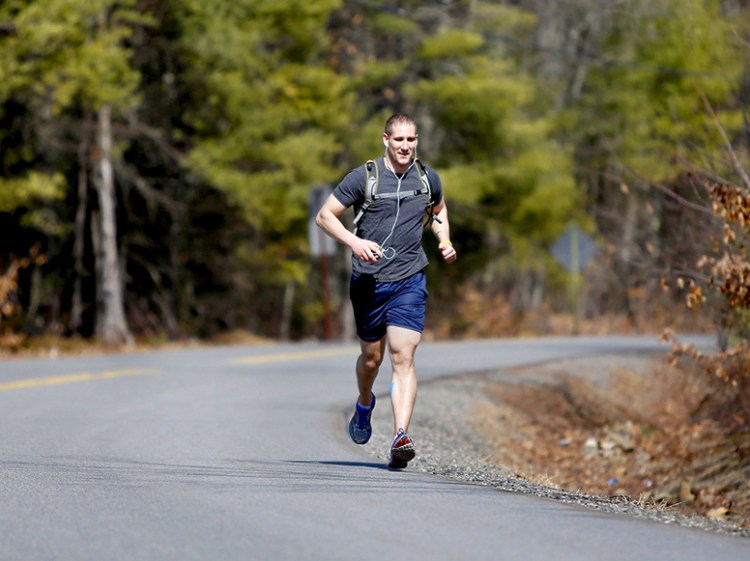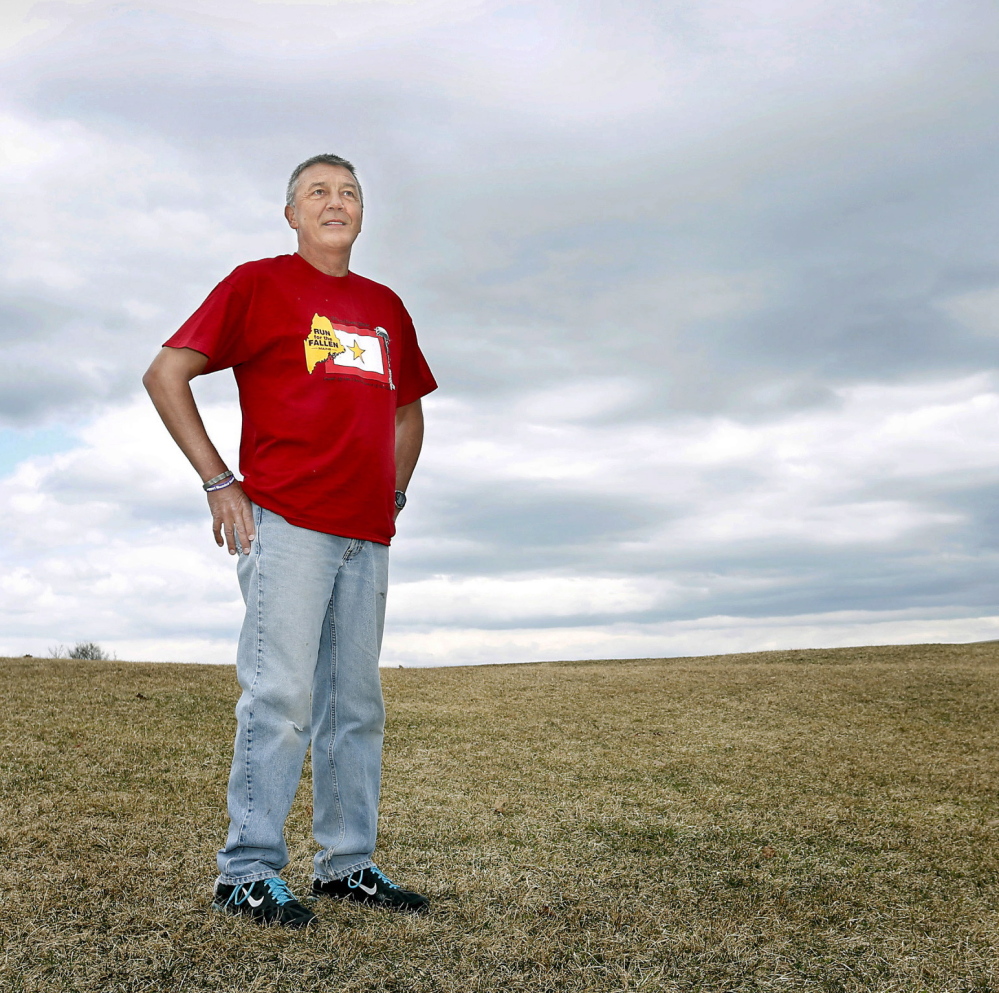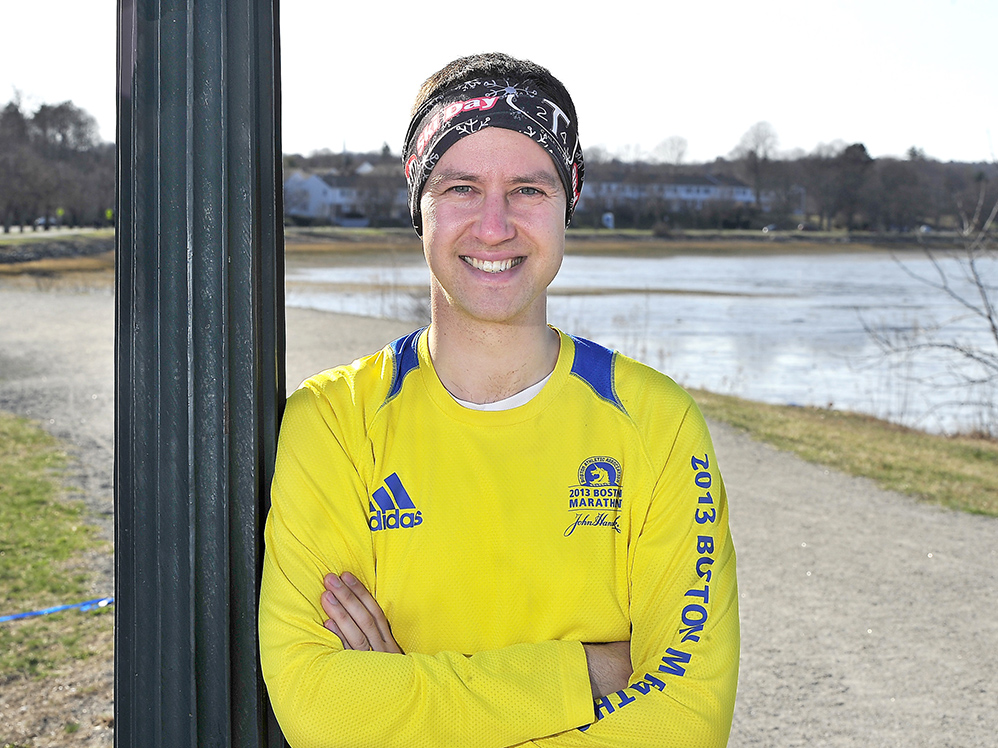South Portland paramedic Matt Cox had an immediate reaction Friday upon learning that convicted Boston Marathon bomber Dzhokhar Tsarnaev had been sentenced to death.
“When I first heard he would be executed, I said, ‘Good, he doesn’t deserve to be on planet Earth,” said Cox, a 35-year-old Wells resident who was a spectator at the marathon on April 15, 2013, and spent hours performing medical triage at the scene of the bombing, which killed three people and injured 264.
But as Cox thought more about the federal jury in Boston sentencing Tsarnaev to death, he became more and more unsure.
“I think there’s definitely an issue here in turning him into a martyr, and I’m actually conflicted about it for that,” Cox said.
Other Maine residents who were at the scene of the Boston bombing had different reactions to the sentence.
A North Yarmouth couple who easily could have been victims of the bombing had the timing been different, both say the death penalty is wrong. But an Ogunquit man who famously rushed to bombing victims at the marathon finish line suggested execution may be giving Tsarnaev the easy way out.
Of those who spoke to the Press Herald in the hours after the jury’s decision, Cox was the most conflicted.
In an interview last month, he was firm in his belief that Tsarnaev should be executed. And part of him remains convinced that the jury got the sentence right.
“We’ve seen a lot in the news recently about him being sorry, and I don’t believe that for a second,” Cox said.
Even so, Cox has been swayed by a compelling letter written by the family of Martin Richard, an 8-year-old boy killed in the bombing, saying that Tsarnaev should be spared. Cox said if anybody has a right to voice their opinion about what happens to the boy’s killer, it’s them.
Cox was there in 2013 with his wife, Cheryl, to support her friend, Jen Meyers of Oregon, as she ran the race. Meyers’ husband, Stefan, was there as a spectator too.
Jen Meyers had finished the race eight or nine minutes before the first bomb went off, and the four of them had gathered a block or two away from the finish line. Being a paramedic, Cox’s instinct drove him to run toward the explosion to help, rather than away from it toward safety.
“I am a paramedic. I’m familiar with trauma. But this was terrorism. This was a bombing. It was awful,” Cox said. “At that point, we didn’t know if we were safe or if there was going to be more.”
John Mixon of Ogunquit appeared in a now-famous news photo from the day of the bombing that shows him tearing through toppled fencing with his friend, Carlos Arrendondo, to get to the injured.
Mixon, 62, is a veteran of the Vietnam War whose life work has been honoring soldiers who died for their country.
There was no joy in his voice in talking about the jury’s decision, whether he thought Tsarnaev should be sentenced to death or life in prison.
“I really didn’t see it one way or another,” said Mixon, who has tried to move on from that day.
“It meant more to me what the families wanted,” he said, referring to the victims’ relatives.
“I didn’t like the idea of making a martyr out of him, but that’s justice,” Mixon said.
He drew a comparison between the sentence recommending death for Tsarnaev and that of another American terrorist, Timothy McVeigh, who detonated a truck next to a federal building in Oklahoma City in 1995. The bomb killed 168 people and injured more than 600.
“I will say this, Tim McVeigh got off way too easy for killing all those people in Oklahoma. A needle in his arm and he goes to sleep,” Mixon said.
McVeigh was sentenced to death on June 13, 1997, on 11 federal counts for the bombing. After about four years of appeals, he was executed by lethal injection on June 11, 2001. The Oklahoma City bombing was the deadliest terrorist attack on U.S. soil before the 9/11 attacks.
But for David Holman, 32, of Yarmouth, who was four blocks from the finish of his first Boston Marathon when the bombs detonated, it’s clear that the jury got it wrong.
“I think it’s wrong morally to murder someone, which is what we are proposing to do,” Holman said. “I think there was a compelling letter by the parents of the 8-year-old boy who died, imploring people not to use the death penalty. It will take years of appeals, and it will cost the U.S. far more money than it would to imprison him for the rest of his life.”
Holman’s wife, 34-year-old Rommy Holman, was supposed to be at the finish line, waiting to see her husband at that exact moment, but she was delayed in the subway trying to get there.
“This is very personal. This is someone who was essentially trying to kill me, and more importantly my wife was going to be even closer,” David Holman said.
His wife, too, agrees that no matter how personal this was for them, the death penalty is wrong.
“I was very happy not to be there. I was also very happy my husband wasn’t there. But I don’t think my feeling about it would have changed if we had been affected,” Rommy Holman said. “I don’t agree with the death penalty, and I feel really disappointed because I wished he would have his entire life to think about what he did.”
A Quaker who serves as assistant director of annual giving at Bowdoin College, David Holman was surprised that jurors in Massachusetts would recommend the death penalty.
“Massachusetts is not a state with the death penalty, and I thought jurors would be more representative of the popular opinion there,” he said.
Send questions/comments to the editors.





Success. Please wait for the page to reload. If the page does not reload within 5 seconds, please refresh the page.
Enter your email and password to access comments.
Hi, to comment on stories you must . This profile is in addition to your subscription and website login.
Already have a commenting profile? .
Invalid username/password.
Please check your email to confirm and complete your registration.
Only subscribers are eligible to post comments. Please subscribe or login first for digital access. Here’s why.
Use the form below to reset your password. When you've submitted your account email, we will send an email with a reset code.